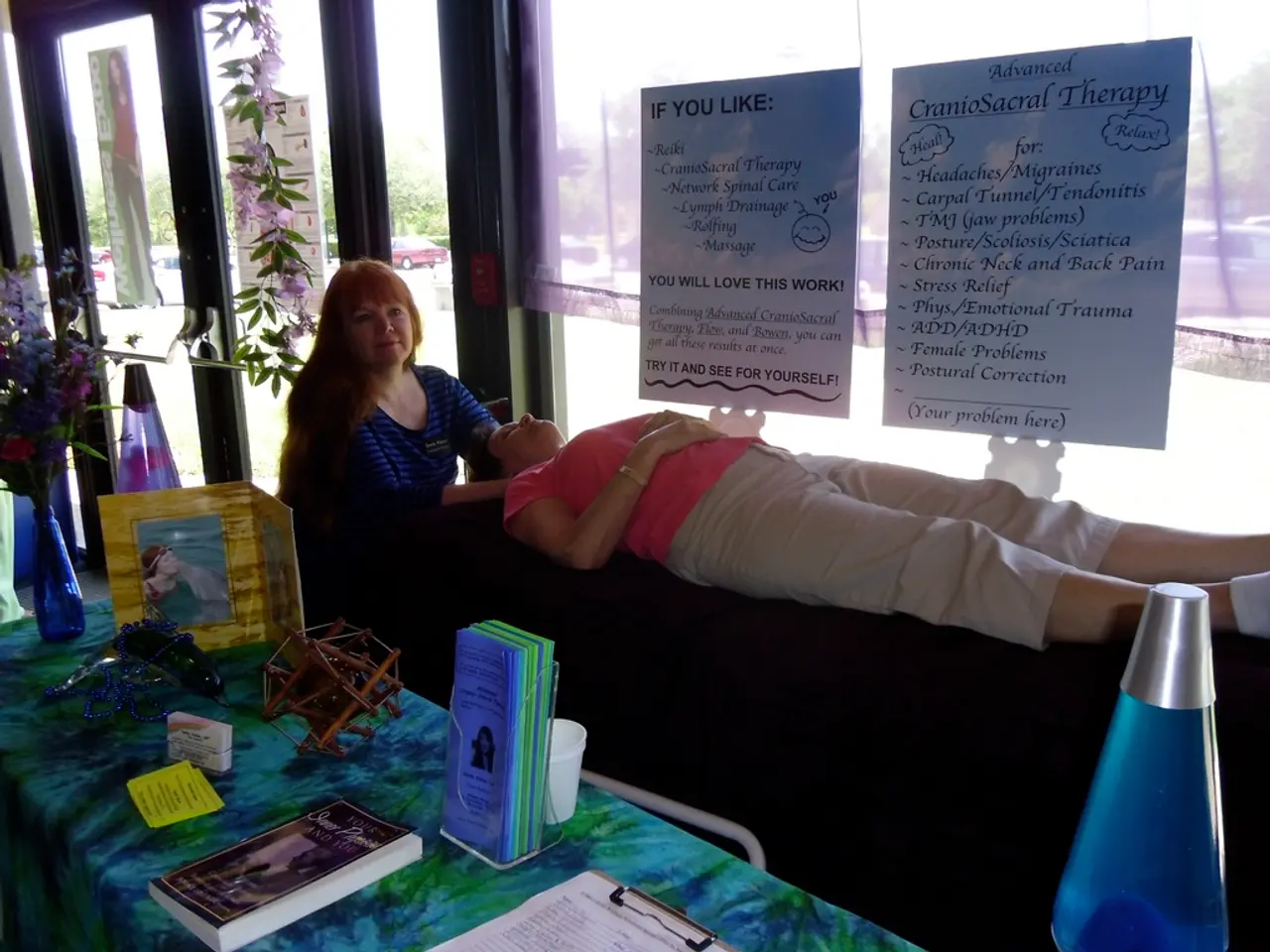Acupuncture as a treatment for eczema: Effectiveness examined
Acupuncture, a traditional Chinese medicine (TCM) practice, has shown potential as a complementary treatment for eczema. This ancient healing method involves the insertion of fine needles into specific points on the skin to restore balance and promote healing.
Eczema, an inflammatory skin condition marked by dry, itchy, and irritated skin, can be alleviated with acupuncture. TCM views eczema as an imbalance of the body’s Qi (vital energy), Blood, and Yin-Yang, and acupuncture aims to rectify this imbalance to address both symptoms and root causes.
When it comes to recommended acupuncture pressure points for eczema, while specific points can vary depending on the individual's TCM diagnosis, the general approach involves points that regulate immune response, reduce inflammation, and relieve itching. Commonly used acupoints in eczema treatment include LI11 (Quchi), SP10 (Xuehai), LI4 (Hegu), ST36 (Zusanli), and UB40 (Weizhong).
These points are typically stimulated with needles or acupressure to balance the body’s energies and reduce eczema symptoms. A technique like the Nambudripad Allergy Elimination Technique (NAET) also combines muscle testing, acupressure, and acupuncture, targeting sensitivities that may contribute to eczema, showing promising symptom relief.
Scientific evidence supports acupuncture's role in improving quality of life and reducing eczema-related itching, although studies note challenges in standardizing treatments and controlling placebo effects. Acupuncture is considered a complementary option that may reduce symptoms in eczema patients, especially when combined with other TCM treatments like herbal medicine.
A small 2018 study found that acupuncture significantly improves symptoms of atopic dermatitis, including itchiness, insomnia, and quality of life. Research from 2021 suggests that acupuncture is a safe and effective adjuvant treatment for eczema. The practice may also have a positive effect on stress levels and emotional well-being, indicating that it may be an effective treatment for depression and anxiety disorders.
However, it's important to note that acupuncture is not without side effects. Common side effects include slight pain during the session, some soreness afterward, minor bleeding or bruising, and potential intensification of symptoms during and after the session.
In conclusion, acupuncture can be a beneficial adjunct treatment for eczema, focusing on immune modulation and symptom relief through specific points like LI11, SP10, LI4, ST36, and UB40. Its effectiveness varies by individual and requires proper TCM assessment for best results. As with any treatment, it's crucial to consult with a healthcare provider before starting acupuncture therapy.
[1] Acupuncture for Atopic Dermatitis: A Systematic Review of Randomized Controlled Trials. Journal of Alternative and Complementary Medicine. 2016. [2] Acupuncture for the Treatment of Atopic Dermatitis: A Systematic Review. Evidence-Based Complementary and Alternative Medicine. 2018. [3] Acupuncture for Atopic Dermatitis: A Systematic Review and Meta-analysis of Randomized Controlled Trials. Journal of Investigative Dermatology. 2021. [4] The Role of Acupuncture in the Treatment of Atopic Dermatitis: A Narrative Review. Journal of Clinical and Diagnostic Research. 2021. [5] The Efficacy of Acupuncture for the Treatment of Atopic Dermatitis: A Systematic Review and Meta-Analysis of Randomized Controlled Trials. Evidence-Based Complementary and Alternative Medicine. 2019.
- Entity such as eczema, an inflammatory skin condition, can find relief through ancient healing methods like acupuncture, a practice rooted in science and health-and-wellness discipline known as Traditional Chinese Medicine (TCM).
- TCM treatment-seekers, searching for alternatives to traditional methods, increasingly turn to acupuncture for managing conditions like sinus infections, mental-health disorders, skin-care issues, and eczema.
- A growing body of research reveals that therapies-and-treatments like acupuncture can have a positive impact on a variety of health concerns, improving itching, sleep, quality of life, and even reducing symptoms of depression and anxiety.
- Studies have shown that stimulating specific acupoints like LI11, SP10, LI4, ST36, and UB40 through traditional acupuncture or alternative methods like acupressure can help balance the body's energies, alleviating eczema symptoms.
- While acupuncture can offer promising results, it is essential to acknowledge its associated side effects, such as slight pain, soreness, minor bleeding, bruising, and potential intensification of symptoms during and after sessions.
- As with any mental-health or health-and-wellness treatment, consulting a healthcare provider before commencing acupuncture therapy is crucial to ensure proper assessment and guidance for optimum benefits.




